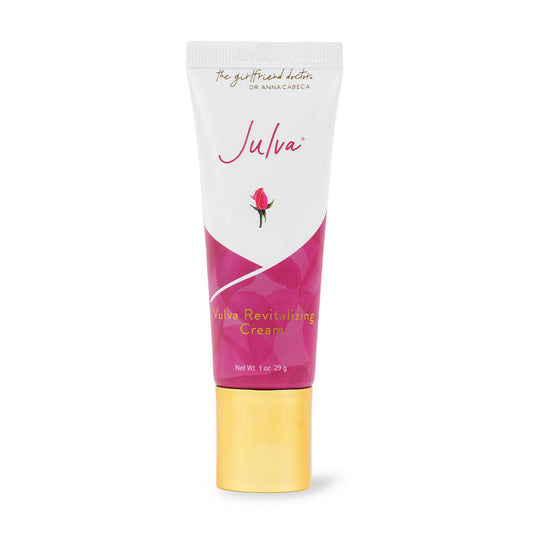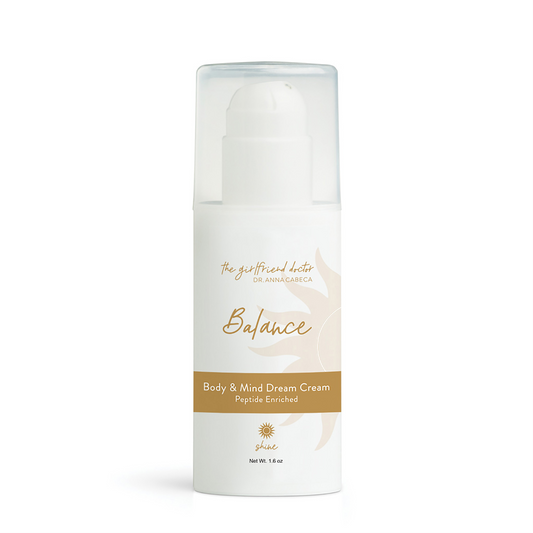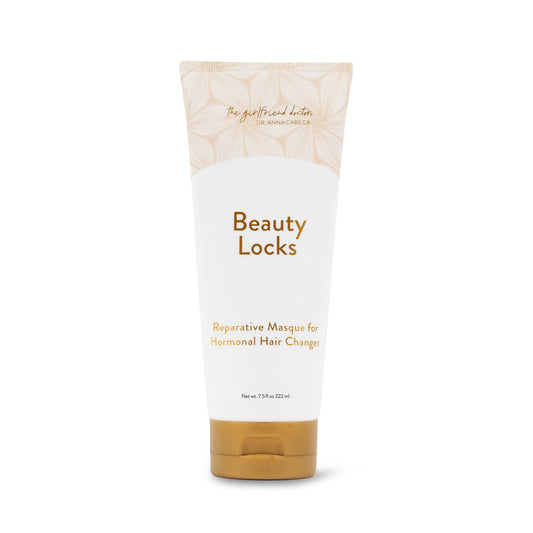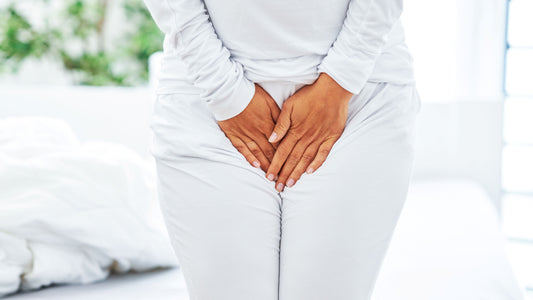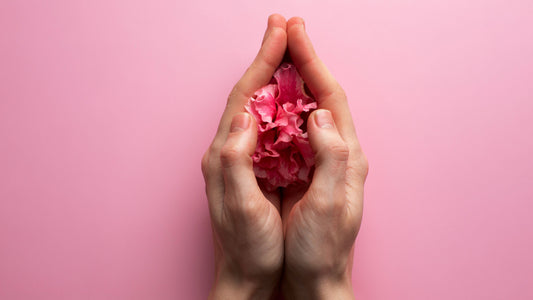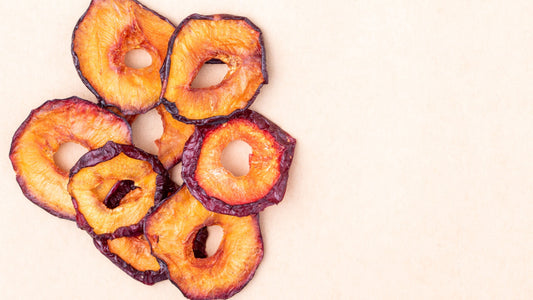We’re going to talk about a topic that in general makes people uncomfortable, and yet almost all women go through at some point of their lives.
Vaginal dryness

I’ve heard this complaint from so many of my female patients — and I don’t only mean those who are going through perimenopause or menopause, but also from those in their 20s and 30s! Vaginal dryness is a very common, very real problem that many women go through, mostly in silence.
We so often avoid talking about the female reproductive system, that many times we aren’t even sure if what we’re going through is natural and normal, or not. So we suffer in silence, maybe even in shame. Because how does one casually bring up, “My vagina is so dry! I don’t know what to do” in conversation?
Why Is Vaginal Dryness A Big Deal?
Vaginal dryness can affect your quality of life, your mental state and can cause physical pain for some. It’s also a sign that something else is going on.

So What Causes Vaginal Dryness?
In general women (and men) know so little about their reproductive system — and I get it! We’ve got so many things going on, it seems like unnecessary knowledge. But knowledge is power. And when you understand what goes on down there, it gives you an opportunity to heal yourself.
As a physician and as a woman, I feel very strongly about empowering each of you to be in control of the quality of your health. This then creates a better quality of our lives and of those we love. And we know, knowledge is power!
As we age, our sex hormones — progesterone, estrogen, testosterone and DHEA — naturally decline, preparing our bodies for the next stage in our lives. It is when this decline takes place that we start noticing the symptoms I mentioned above, as well as hot flashes and other physical discomforts.

But vaginal dryness can be caused by other things as well not just hormones, which is why it can start early in our adult lives and not just as we get older. Things such as:
- Medication: Antihistamines, steroids, antibiotics, certain antidepressants and even some birth control methods, especially birth control pills and hormonal IUDs
- Beauty products: Such as soaps, perfumes, douching, bubble baths, detergents, etc.
- Post-pregnancy: Being postpartum and breastfeeding
- Insufficient arousal
- Gut imbalances: Such as food allergies or sensitivities
- The daily grind: Stress and anxiety
- Hormone-disrupting activities: Smoking, eating foods that contain hormones, antibiotics, GMOs, and exposure to toxins in the environment
Is There a Cure for Female Dryness?
The common misconception is that all this will magically go away after a while. This really depends on the reason and if we don’t address the root cause of WHY we are experiencing this. So, many women over 40, attribute it to age and just buckle in and prepare to wait it out — albeit in agony.
But here’s the thing: vaginal dryness doesn’t go away like hot flashes will… eventually, instead, its severity just increases over time¹ and will lead to other consequences.
Yes, you read that right. In fact, research shows that many women can expect to live 40% of their lives in this discomfort². For something that can be treated or even prevented, this is unacceptable!
You can go on to lead a pain-free, worry-free life. You just have to know what is going on with your body and I’m here to share some proven natural solutions on how to overcome vaginal dryness.
I always say: “do the natural stuff first”. So here are 5 options that could help:

"Many soaps and bubble baths contain irritants that can mess with the balance of the natural flora."
I’d like you to think of your vulva as an oasis with its own flora — balanced, nourished and keeping everything running smoothly. There is a whole ecosystem within the vagina that you’re probably unaware of. Many soaps and bubble baths contain irritants that can mess with the balance of the natural flora (aka oasis) of your vulva and vagina.
Sometimes women also “overwash” our vulvovaginal area, stripping it of all the good stuff it needs to maintain a healthy flora. Our vaginas are actually self-cleaning and do not need to be cleaned with specialized intimate hygiene soaps nor douches. Water or a gentle perfume free soap is just fine.
Another possible way we get toxin exposure is the detergent that is used to clean our undergarments. Switch to something natural and gentle and see if that makes a difference.
"Try to buy unbleached sanitary pads and tampons, or reusable ones for your period."
Recommendation: Just reading the labels on your products and avoiding the worst offenders can help a lot. Go over to EWG (1) which is a wonderful site that provides great info on toxins that can be found in your personal skin care products, foods, homes and more.

"Add some healthy fatty foods to your diet - like free-range, hormone free eggs and butter, avocados, olive oil, salmon, and oysters."
This is one of my favorite tips because it involves eating some yummy foods, especially essential fats! Fat gets so much pushback from the media but ultimately, essential fats are necessary for your diet.
Add some healthy fatty foods to your diet — like free-range, hormone-free eggs and butter, avocados, olive oil, salmon and oysters (yum!).
In the '80s the “no-fat” movement was full on. So if you were raised in that timeframe, you know we were brainwashed against fats and high carbs were okay — oh, it just isn’t so! We need healthy fats for healthy and happy hormones and V!
Remember that lovely flora we talked about in the point above? The body does a pretty good job maintaining the balance of that flora but we can always help out too. Include fermented foods in your diet that are naturally rich in probiotics — like kimchi, kombucha or pickled veggies.
"Include fermented foods in your diet that are naturally rich in probiotics - like kimchi, kombucha or pickled veggies."
Recommendation: Eliminate high-allergy foods like gluten and dairy from your diet (if you’re symptomatic with anything, I highly recommend it). Another big culprit is sugar, which can really wreak havoc to your sex hormones. Either eliminate all sugary drinks and sugar, grains and high carbohydrate containing foods, or cut it down significantly.

"Reach for natural lubricants - ghee and organic coconut oil. Be safe with your lady parts!”
I am not against using lubricants even though it is a short-term solution. However, I’d like to caution against using many of the commercial lubricants because many contain additional chemicals that can contribute to dryness and discomfort.
Instead, reach for natural lubricants — some of my favorites are ghee and organic coconut oil. Less is more when it comes to oil, so just a bit will usually suffice.
You can also add essential oils to your coconut oil or ghee that have been shown to soothe the vaginal tissues. Some of my favorites include Salvia sclarea, Roman chamomile or Cape chamomile, rose, lavender, frankincense and sandalwood.
If you don’t have the time, energy, or inclination to make your own natural lube, consider using my new (2025) gynecologist—formulated lubricant, Velvé. I designed it to provide immediate, short-term relief—and pleasure—during intercourse and other intimate activities. It’s especially formulated for menopausal and postmenopausal women.
Recommendation: Be aware that oil-based lubricants do not play well with latex condoms. So be sure to find a water-based lubricant that is safe, natural and organic. When it comes to essential oils, never apply essential oils straight onto the vagina. Always use a carrier oil or test the oil first on your inner arm to make sure it doesn’t irritate you. Be safe with your lady parts!

It might seem weird that I’d recommend kegels as a way to combat vaginal dryness, but kegels and other pelvic floor exercises, done correctly, will get the blood flowing to your vaginal tissues and strengthen your muscles, increase the elasticity and intimate pleasure. This is important for the rest of your life!
On top of that, Kegel exercises will also help you prevent or defeat incontinence.
Recommendation: Do daily kegels correctly to keep everything tight, fit and functioning with your lady bits. There are also some yoga poses that help keep the pelvic floor in shape. Ask your yoga teacher what they’d recommend.

"Educate yourself about hormone treatments. It can be a confusing topic and we trust our doctors to know what's best for us."
This is not to be mistaken with estrogen therapy, which is still the most commonly prescribed hormonal treatment for vaginal dryness. But first, let’s talk a little about estrogen therapy when it comes to vaginal dryness.
Going back to our sex hormones, mainly: estrogen, progesterone and androgens, which consist mainly of testosterone and DHEA.
Progesterone and estrogen are the first to start declining as we age. Which is why we are normally prescribed estrogen therapy. However, while oral estrogen therapy (which is hormone replacement therapy) can be helpful for hot flashes, it really hasn't been found to help with vaginal dryness, nor is it recommended for women who've had breast cancer.
Locally-applied estrogen therapy, on the other hand, may improve vaginal moisture and irritation but only really addresses the mucosal layer of the vagina — not its deeper layers, the vaginal muscles — so it’s a temporary solution.
What I would recommend as an alternative instead is androgen therapy. I have been prescribing locally applied, natural androgen hormone alternatives such as DHEA and other natural hormones — as have some of my peers — for almost two decades, with tremendous results.
Recommendation: Educate yourself about hormone treatments. It can be a confusing topic and we trust our doctors to know what’s best for us. But we can also pay attention to what is or isn’t working for our body.
Let’s Talk About DHEA
Few women know about androgen hormone alternatives such as DHEA for vaginal dryness because we are typically only recommended estrogen therapy — which as I mentioned above is fine for certain things but may not be enough for vaginal dryness.
For vaginal dryness, I want to focus on another key hormone — dehydroepiandrosterone (DHEA).
Remember our sex hormones? Well DHEA is an androgen, similar to testosterone (which yes, women also have). Androgens are necessary to improve the body’s functions (in both men and women) like keeping your skin tight, repairing your muscles, strengthening your bones.
DHEA has been shown in scientific studies, to also maintain libido, sexual desire and sexual function. Basically, it not only treats vaginal dryness and irritation but also boosts your mood and sex drive.
On top of that, prescribed vaginal preparations, like Intrarosa, have also been shown to improve the musculature of all three layers of the vagina. This increases the density of collagen fibers in the vaginal wall and strengthens the muscular layer.
It treats not only symptoms like urinary leakage, vaginal dryness or pain, but can also help you reclaim your libido and orgasms.
Where Can You Find Androgen Therapy For Vaginal Dryness?
Prescription formulas for vaginal use are available from your doctor and compounding pharmacies.
Because so many women struggle to look for solutions, I knew that we needed an anti-aging cream for vulvar health and I created Julva® feminine cream which contains DHEA along with several other synergistic and nourishing anti-aging ingredients.
From my work with thousands of women, I knew I needed something with anti-aging benefits that are easy to use, smells good, and feels good and without added additives, that is toxin-free and all natural. This is the only way to make sure your lady bits aren’t absorbing anything that can contribute to your vaginal dryness, affect your pH and normal flora or other symptoms your body might be dealing with.
This can be a little a tough to find in the market, so I created the Julva® cream that is for this exact purpose. It’s perfect for the delicate tissue of the vulva because it only uses natural ingredients that are 100% safe for your body.
Apart from DHEA, it includes:
- Alpine Rose plant stem cells
- Vitamin E
- coconut oil
- Emu oil
- and shea butter
All of the above help to improve moisture and combined, are very rejuvenating.
You can try Julva® for a week, for free. For this 7-day trial pack, you only pay for shipping so there is no risk on your part.
So once you try my solutions above, please let me know how it makes you feel. We’re all in this together!
References:
1. https://www.ewg.org
2. Calleja-Agius, M.P. Brincat. Urogenital atrophy, Climacteric. 12 (4) (2009) 279–285.
3. Parish, et al. “Impact of Vulvovaginal Health on Postmenopausal Women: A Review of Surveys on Symptoms of Vulvovaginal Atrophy.” International Journal of Women's Health, 2013, p. 437., doi:10.2147/ijwh.s44579.


